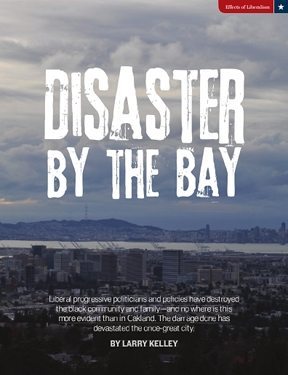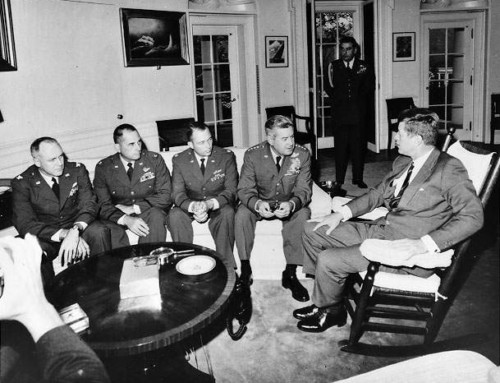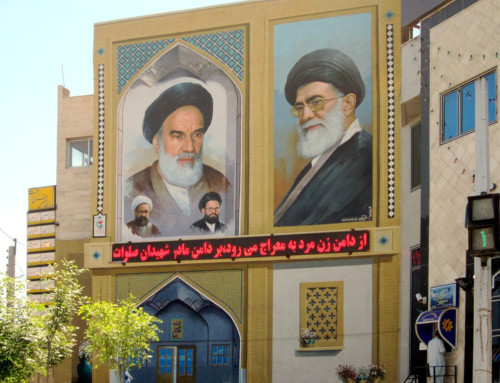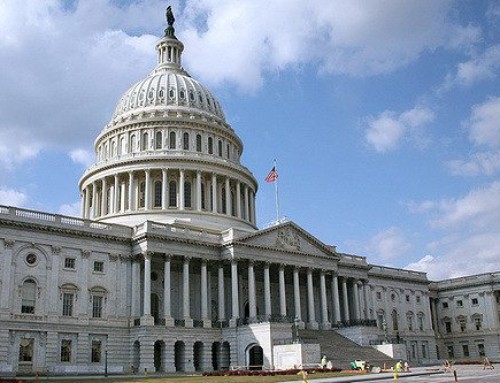Liberal progressive politicians and policies have destroyed the black community and family—and no where is this more evident than in Oakland. The damage done has devastated the once-great city.
Original Article in April 2011 Townhall Magazine (pdf)
Thucydides, our primary source for the 27-year Greek civil war we call the Peloponnesian War, portrayed Athens, his home city, conquered by Sparta, as a tragic hero possessed of both greatness yet fatal flaws.
Oakland, which occupies one of the most spectacular bucolic sites on the planet, is a city suffering much the way Athens did—plagued by the catastrophic unintended consequences of the democratic process, which in Oakland has delivered a radical, left-wing one-party rule. A tragic sinister aura always lurks just beneath the seemingly idyllic surface. Despite its picturesque environment and perfect weather pattern, it is among the most dangerous cities in America.
Sometime after the last ice age had reached its zenith 13,000 years ago, nomadic hunter/gatherers began inhabiting the incredibly gamerich temperate lands of what is today the eastern shore of San Francisco Bay. As Malcolm Margolin writes in his account of Oakland’s prehistoric Native Americans, “The Ohlone Way,” the earliest seafaring explorers, no matter how well traveled, were awestruck by the plentitude of wildlife living there. Vast herds of elk—“monsters with tremendous horns”—grazed the massive meadowlands along with huge herds of pronghorn antelope. Packs of wolves hunted them along with mountain lions, bobcats and coyotes. The bay was so dense with whales that it was common to see one beached surrounded by herds of grizzly bears gorging themselves.
The natives living in the area, the Ohlone, were a collection of 40 disunited tribes living from what is today Berkeley and Oakland south to San Jose and Monterrey. So plentiful was the game, edible plants and fierce man-eating predators, tribes living just 20 miles apart travelled so little that they each developed their own distinct language. And consequently, they did not find the need to discover metallurgy or agriculture or even a word for war.
During the late-18th and early-19th century, the ruling Spaniards herded the docile natives into missions, where the vast majority promptly died of infectious diseases or grief. In their defense, it never occurred to the Spanish missionaries that their charges would never show any interest in becoming members of Western Christendom. Those Ohlones who did not die of disease lived out their lives as stable boys or maids but were so wretchedly saddened by the loss of their beloved tribal life of plenty that they failed to marry and procreate. The cruelty visited upon Oakland’s natives would just be the beginning of the ultimate tragedy that would come to define the troubled land.
GOLD BOOM
With the start of the gold rush in 1849, the city became a boomtown. During the 1850s, for those who had made the 20,000-mile voyage around Cape Horn, Oakland was their jumping-off point before heading up into the gold fields of the Sierra Nevada Mountains. Oakland’s first entrepreneurs made fortunes provisioning the hoards of miners and job seekers. Six years before the completion of the transcontinental railroad, Mark Twain made the trip by stagecoach from Saint Joseph, Mo., stopping in Oakland on his way to observe and memorialize the Wild West. In his American classic “Roughing It,” he would write of Oakland: “It was the only population of the kind the world has ever seen gathered together. … They fairly reveled in gold, whiskey, fights and fandangos, and were unspeakably happy.”
The city boomed again when the transcontinental railroad was completed in 1869. Suddenly it became the terminus for all east-west rail travel, the final rail stop before travelers completed their final leg by ferry headed to the fabled San Francisco.
By 1870, wrote Barbara Bagwell in “Oakland: The Story of a City,” Oakland was the most diverse city in the country, a temporary home to miners and adventurers not just from the U.S. but from around the world, home to Asians who had originally come to work on the railroad, and home to African-Americans, many former slaves, who worked as porters for the Pullman Company. The invention of the Pullman car, which could be converted from seating to sleeping quarters, made long-distance rail travel comfortable and immensely popular.
To Pullman’s credit, in the first decades after the Civil War, it hired African-Americans to be porters in large numbers, providing black men with the best wage available to them anywhere in America. Due to the lower cost of living at the western end of the line and Oakland’s social freedom—nearly 100 years before the passage of the Civil Rights Act—blacks were unfettered, able to buy homes, acquire wealth and achieve civic prestige in Oakland.
While Oakland remains one of the nation’s most diverse cities, the radical Left has succeeded in almost destroying the black community and families—driving Oakland to near ruin.
OAKLAND’S FIRST RADICAL
Born in 1876, the illegitimate son of Flora Wellman, Jack London would achieve worldwide stature for his novels and adventure stories and become one of America’s most iconic writers. While sporadically attending Oakland’s public schools, London spent a number of years toiling 12 hours a day as a child laborer in its factories. In the 1880s and ’90s, in the era of the robber barons, not only was there no safety net, there were no laws protecting children from what amounted to parent-sponsored indentured servitude. The misery of that existence not only fueled his passion to escape poverty through his brilliant writing, but it also led to his becoming one of the world’s leading voices advocating violent Marxist revolution.
By 1904, with worldwide accolades pouring in from his publication of “The Call of the Wild,” he was elected president of Intercollegiate Socialist Society. This brought him invitations to address “silk stocking” audiences where he would shock them: “We are an army of 7 million. The cry of this army is ‘No quarter! We want all you possess. We will be content with nothing less.’” At this time, there was also a speaker’s corner one block from Oakland’s city hall where London often could be found exhorting Oaklanders to embrace his own brand of revolutionary “social Darwinism.”
London died Nov. 22, 1916. A decade after the Bolshevik’s conquered Russia, the Soviet Union would proclaim him a national hero of the Revolution and declare the date a day of mourning.
Early on, the revolutionary Left became a permanent fixture with deep historic roots in Oakland.
THE POLITICAL ESTABLISHMENT MERGES WITH THE CRIMINAL UNDERWORLD
During the 1970s, Communist-radical-turned-conservative-author David Horowitz witnessed up close the moment the most senior members of the Oakland political Left made common cause with the violent criminal underworld of the Black Panthers.
In his book, Hating Whitey and Other Progressive Causes, he records that his involvement with the Oakland-based Panthers began in 1973. That year, he was in California raising money for a new flagship magazine of the Left, Ramparts, when he was introduced to Black Panther co-founder Huey Newton.
“Huey’s attraction to the Left had always been his persona as ‘Minister of Defense’ of the Black Panther Party, his challenge to revolutionary wannabees to live up to their rhetoric and ‘pick up’ the gun,” Horowitz writes. “Unlike Elaine
Based on his initial meeting with a charismatic Newton, Horowitz admits to being duped into staying in Oakland to help raise money to buy a Baptist Church in the ghetto in order to form a Panther elementary school. Shortly thereafter, due to his success at raising sufficient funds to purchase the building, Horowitz found himself firmly embedded in the Panther’s inner circle. It would be a life-changing experience, one that could well have cost him his life.
But before the new “Oakland Community Learning Center” would open, Newton—who had his own problems associated with a drive-by shooting, a brawl with two Oakland cops and his failure to appear at an arraignment for the murder of a white 17-year-old prostitute—fled to Cuba. Newton’s departure left the command of the Panthers to Brown, whom Horowitz describes as an extremely hard-edged and menacing political gangster. “I will never forget standing next to Elaine as she threatened KQED-TV host Bill Schechner over the telephone,” he writes. “‘I will kill you motherf—-r,’ she promised him, if he went through with plans to interview the former Panther Chairman Bobby Seale.”
By its opening, Brown had recruited to the board of the Panther’s learning center a who’s who of Oakland’s political dignitaries, including the city’s first African-American mayor, Lionel Wilson, and the CEO of Clorox. While they were running a crime syndicate, selling drugs and running protection rackets, shaking down afterhours clubs and murdering owners who refused to pay, Brown was able to mainstream the Panthers with the elite of the Oakland Democratic Party and its supporters—those who commanded all the levers of power in Oakland and still do.
Horowitz would later discover that the learning center was but a front, a mechanism the Panther leaders used to divert large sums of money from government grants and charitable donations— primarily from prominent white leftists—in order to hire gunmen and to keep them in fancy cars and clothes and drugs and, “when necessary, out of jail.” When the Panther treasurer fled the organization, Horowitz recommended the bookkeeper at the learning center, Betty Van Patter, fill the position. This was his last act of assistance to the Panthers and to the cause of the American Left. Shortly thereafter, there was a fatal shooting of a Panther named Deacon at a dance held at the learning center. The shooting had been over drugs the party was dealing out of the school. On the night after Deacon’s funeral, a Panther walked into the Berkeley Square, a neighborhood bar, and handed Van Patter a note. She left and was never seen alive again. Her mistake was that she asked too many questions and knew too much.
Five weeks later her body washed up on the Oakland side of the bay. Horowitz contends, “Everything I knew about the party and the way it worked, led me to believe that Elaine Brown had given the order to have her killed. Betty’s murder shattered my life and changed it forever.”
The press made nothing of the murder. The Oakland Police told Horowitz, “You guys have been cutting our balls off for 10 years. You destroy the police and then you expect them to solve the murders of your friends?”
While the investigation of Van Patter’s death continued to amount to nothing. Brown ran for the Oakland City Council and received 44 percent of Oakland’s vote. A year later, then-Gov. Jerry Brown (also California’s current governor and former mayor of Oakland) sought out her endorsement for his presidential run and made her one of his delegates to the Democrat Convention in 1976.
As Horowitz summarizes his experience as a member of Oakland’s political underworld, Oakland’s white Leftists in the press and in the voting public would forever pardon the likes of Newton, Elaine Brown and the Panthers. They chose to see it as part of their righteous struggle against repression perpetrated by the FBI and the racism so endemic to American society. The establishment Left looked the other way even when the Panthers murdered a woman working for the cause.
OAKLAND’S ONE-PARTY RADICAL RULE
In Oakland, few Republicans ever even run for elective office. And from a fiscal point of view, Oakland is a microcosm of California’s Democratic one-party rule. The state struggles to cope with a $25 billion deficit. Oakland recently laid off 80 police officers, among other across the board cuts, in order to deal with its $50 million budget shortfall. According to the city administrator’s website, Oakland’s revenues have been devastated by the “housing crash” and the “tens of thousands of Oaklanders unemployed.”
The Wall Street Journal reported that, for the month of September 2010, California led all other states with 63,500 job losses and was way out in front of second-place New York with 37,600 lost jobs. Walking down Broadway, the central boulevard in downtown Oakland, one cannot avoid noticing the numbers of vacant large buildings facing the street.
And for the past 40 years, while one-party rule has presided over the decimation of its once prosperous African-American families, Ron Dellums and his former assistant, Barbara Lee, have been the only two representatives sent to Congress from California’s 9th Congressional District, serving Oakland. Dellums, the man who once vowed to “take the CIA apart brick by brick,” was elected to Congress in 1970 and served continuously until 1998 when Lee—who, reports Horowitz, got her start in Oakland’s political underworld as the onetime confidential aide to Huey Newton—succeeded him.
In 1981, as chair of the subcommittee on Military Installations, Dellums went on his own fact-fi nding mission to Grenada to determine if the airstrip the Cubans and Russians were building there was being developed for military use. He returned to falsely assure Congress that it was not.
Both Dellums and Lee colluded with communist Grenada dictator Maurice Bishop in an attempt to cover up the fact that the Soviet Union was, in fact, building a military airport there. Even Wikipedia records that documents liberated from Grenada demonstrate that Dellums did commit what was arguably a treasonous act while serving as Oakland’s congressional representative. The documents also reveal that Lee was his messenger.
As long as Oakland continues to elect people like Dellums and Lee, hope for the region remains small.
DESTROYED FAMILIES—DESTROYED LIVES
Jack Cashill observed in his groundbreaking book, “What’s the Matter with California?,” that no matter how liberal you are, you can’t excuse or construct an argument to rationalize murder. Yet on Jan. 1 of this year, the Oakland Tribune made an easily discredited attempt to do just that by lauding the fact that the city’s murders in 2010 dipped to 95, a 15 percent drop from 2009. However, this was merely subterfuge and wishful thinking, because, according to the paper, the incidents of aggravated assault with a firearm in 2010 rose by 28 percent to 900 from 700 in 2009. Either the marksmanship of Oakland’s shooters had precipitously dropped off last year or the doctors at Highland Hospital had made some medical breakthroughs in treating gunshot wounds.
In 2009, Oakland’s homicide rate was 24.5 per 100,000 residents. The five-year average for homicide victims in Oakland, by ethnicity, breaks down as follows:
- 77 percent black,
- 15.4 percent Hispanic,
- 3.2 percent white,
- 2.8 percent Asian and
- 1.6 percent unknown.
The five-year average for homicide suspects in Oakland is:
- 64.7 percent black,
- 8.6 percent Hispanic,
- 0.2 percent white,
- 2 percent Asian and
- 24.4 percent unknown.
The numbers paint a bleak portrait—young blacks killing each other.
The Tribune did report, however, on Feb. 1: “Oakland, a bastion of proud black history, is also an epicenter of its fragmentation. According to a study released this week by the Violence Policy Center in Washington, D.C., Alameda County is the second-deadliest county in California per capita for youths ages 10 to 24, trailing only Monterey County. This is particularly true for young African-American men, who are 14 times as likely as their white counterparts to die violent deaths, most often by handgun.”
So what happened?
In Cashill’s research, he hit upon a primary cause for the state’s negative phenomenon: fatherlessness. And few cities show the impact of this trend more than Oakland.
For the pathologies currently afflicting Oakland’s black community, the trigger was Lyndon Johnson’s Great Society. For several generations in Oakland, with various forms of assistance, the state has financed, promoted and exponentially spread the catastrophic unintended consequences—crime, poverty, illiteracy and more—associated with unwed motherhood. Studies and common sense confirm that there is no clearer connection to a life of crime than being born to a semi-literate, poor, single mother.
Oakland was once the home to a blossoming black middle class dating all the way back to the 1880s. African-American conservatives Walter Williams, Thomas Sowell and Shelby Steele can personally attest to the fact that by the late 1940s, poverty and illiteracy were declining rapidly among African-American communities such as Oakland and crime was no higher than in any other ethnic neighborhoods. Williams, who grew up in a housing project in Philadelphia, writes that “up until the 1940s, 75 to 85 percent of black children lived in two-parent families. Today, 70 percent of black children are born to a single woman. The welfare state has done to black Americans what the harshest form of racism couldn’t do. And that is to destroy the black family.”
A Feb. 1 piece on Black History Month in the Oakland Tribune featured interviews with longtime black Oakland residents about the state of Oakland’s black community after years of liberal rule and policies (though the paper neglected to point out the political connection). Queen Thurston, a woman who grew up in West Oakland, remembers her childhood fondly. “She’d come ‘home right after school, do her homework, then head out with a dozen or more friends and roller skate all over the neighborhood until it got dark, and sometimes later,’” reported the Tribune. “‘The kids used to all get along,’ recalled Thurston, 79. ‘It’s not like today. Families were intact back then.’”
Thurston told the paper, “A lot of these children today have missed out on knowing that there was a lot of greatness that came out of the black community.”
Another lifelong Oakland resident, Sandra Johnson Simon, lamented the condition of the family to the Tribune, saying, “We respected our parents to the utmost. Nowadays, to me, it seems like a lot of these kids don’t understand the definition.”
MISERY: THE LOGICAL RESULT OF LIBERAL POLICIES
The San Francisco Chronicle recently ran a story proclaiming the GOP brand in California dead. Having been ruled by progressive policies for years, the state is a prime example of the damage a government can do to a business climate. With one of the highest sales taxes, the fourth-highest capital gains taxes, one of the worst bond ratings and much more, businesses are leaving the state—which impacts a city on the downward slide like Oakland exponentially harder.
What’s worse: After years of progressive policies, the state is a prime example of the damage a government can do to a community and to families— and with liberal Democratic policies, it becomes a vicious cycle.
One can drive into the ghetto and marvel at the Victorian homes still standing there, built when Oakland was young and the West was still wild. But what is most immediately obvious is the squalid conditions of a once thriving, beautiful community.
This is what happens when liberals are repeatedly placed in charge: Lives are ruined.
Stop to consider ObamaCare. On Feb. 10, Congressional Budget Office Director Doug Elmendorf testified to the House Budget Committee that ObamaCare, when fully implemented, is expected eliminate employment for 800,000 Americans. It turns out that, for Oakland’s permanent underclass, the agents of their misery are the politicians whom they continuously vote to govern them: Lee, Dellums, Brown, President Obama and the rest of the far-Left progressives who are false prophets, who offer to subsidize self-destructive behavior and who are the creators of dependence.
For the members of Oakland’s dependent class, this current incarnation of democracy is not working—it is making their suffering worse. Their elected rulers surely know that whatever the government taxes and regulates—income and jobs—it will get less of. Whatever it subsidizes—unwed motherhood—it will get more of. But they are undeterred. •






